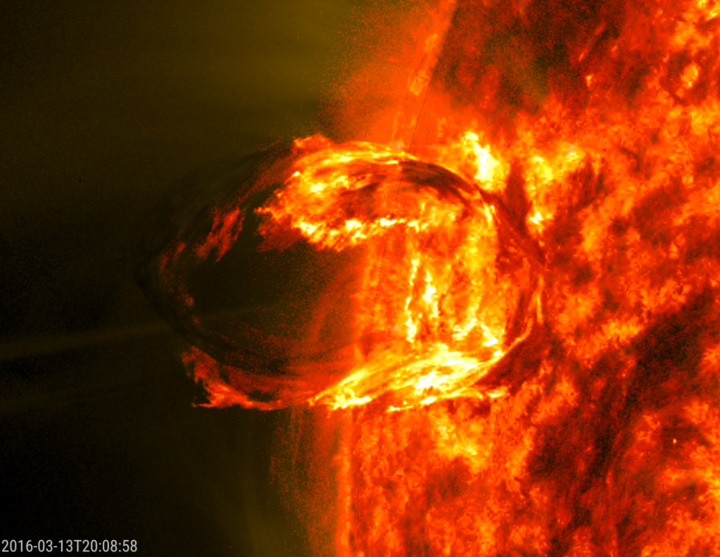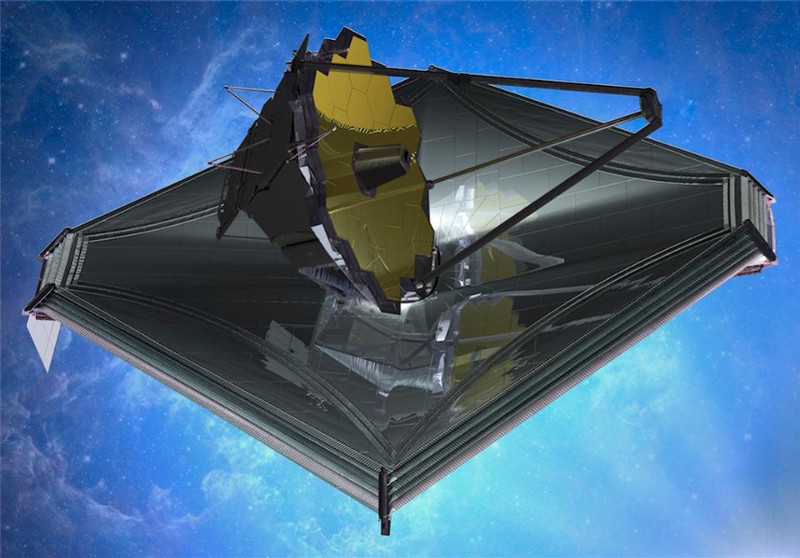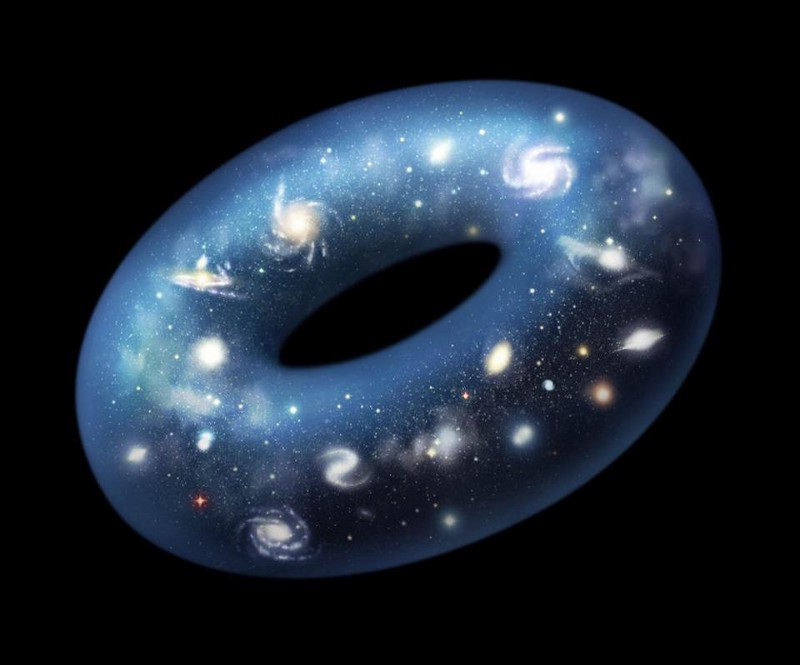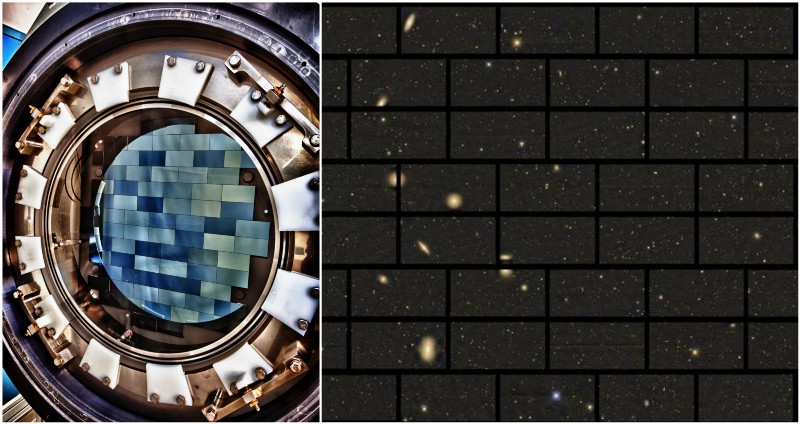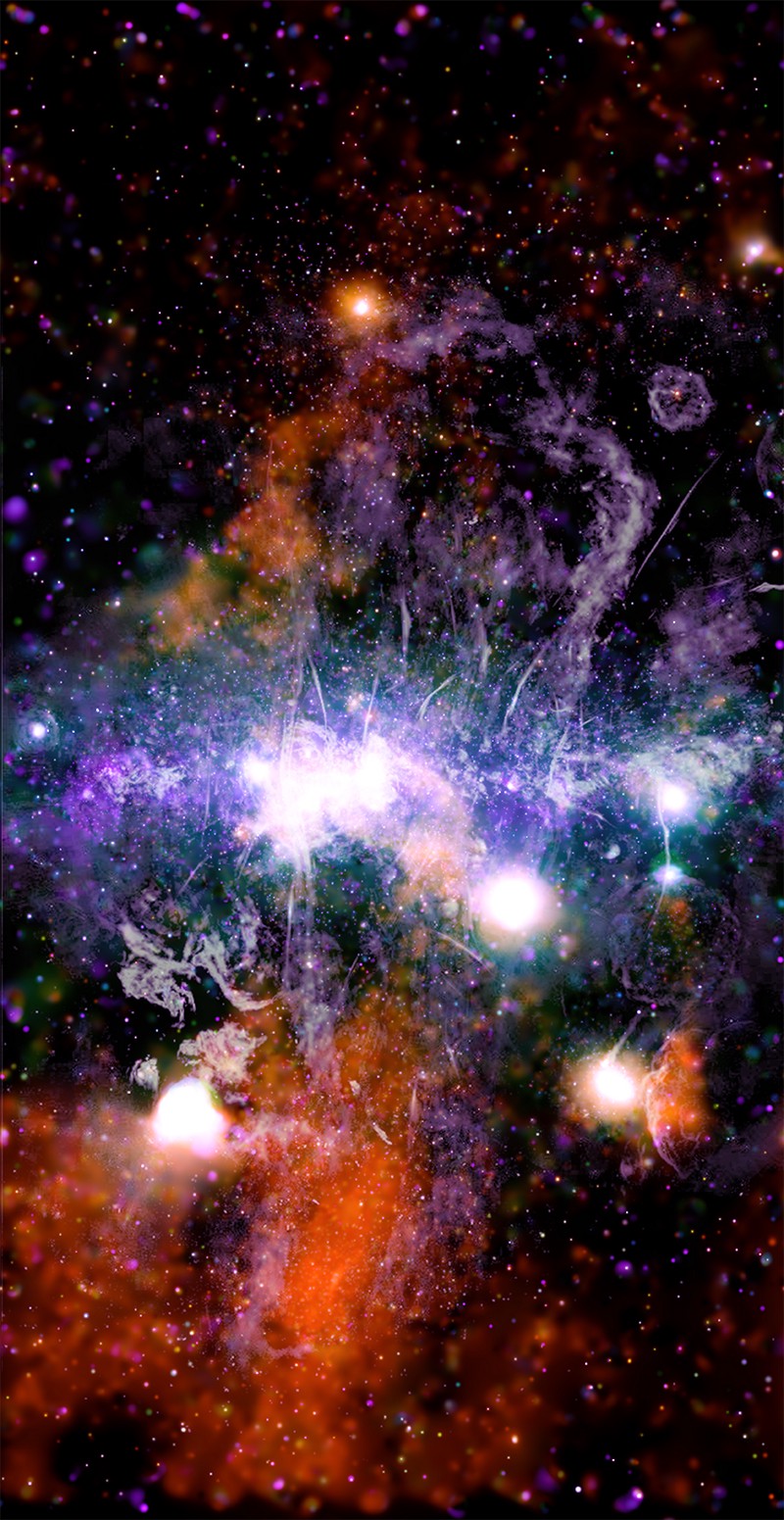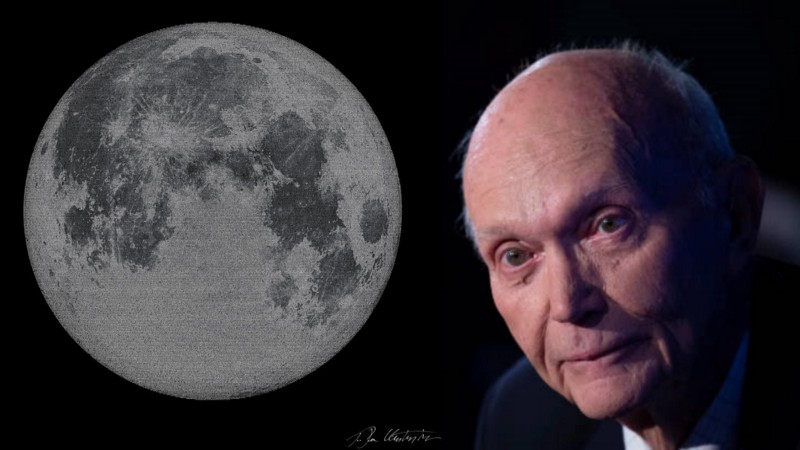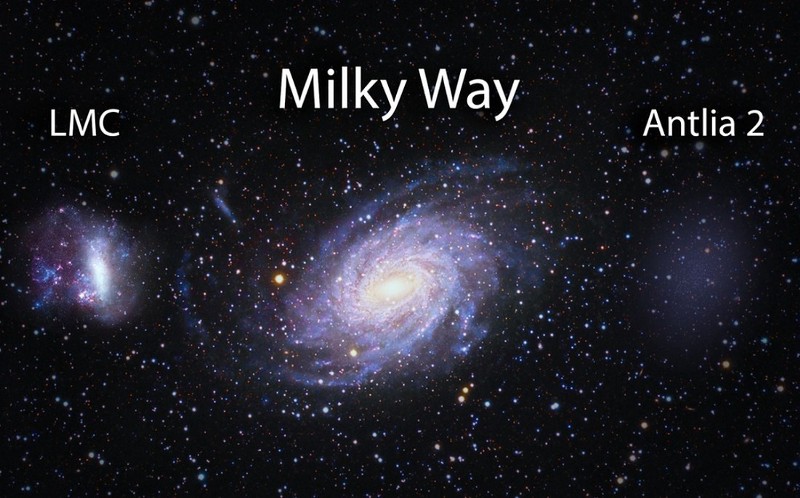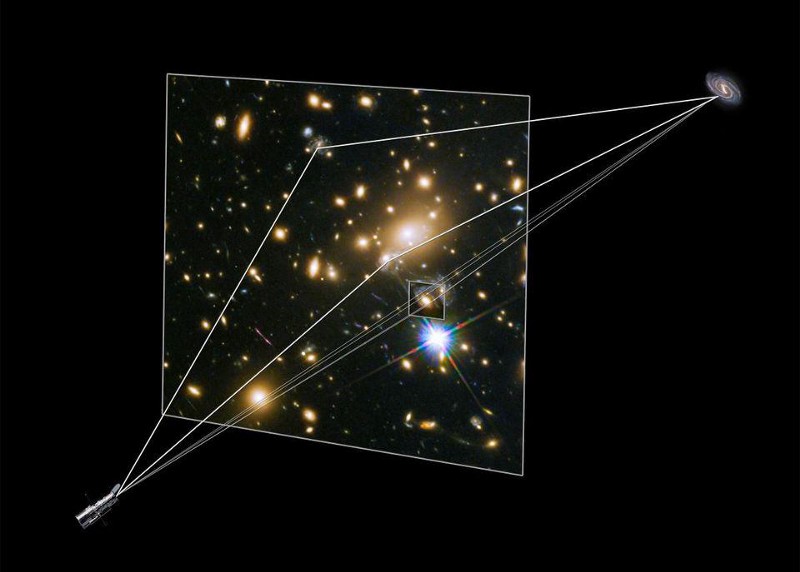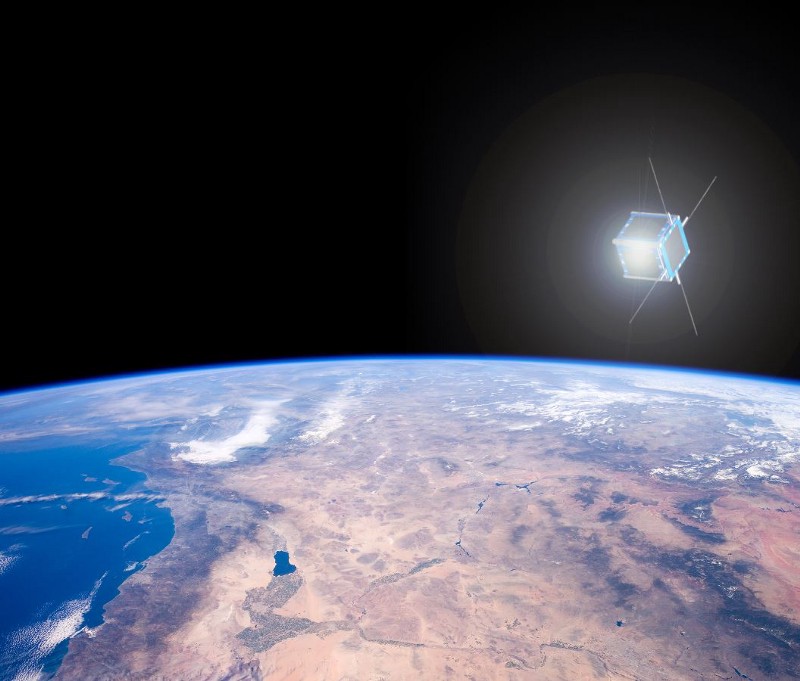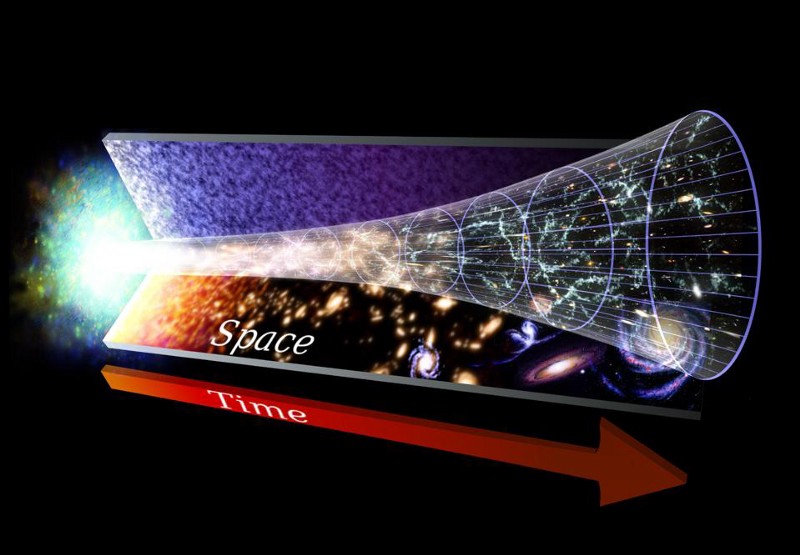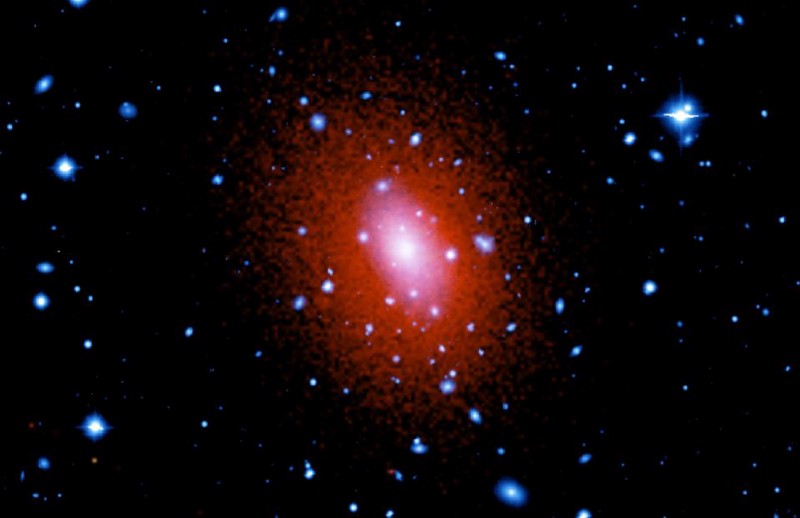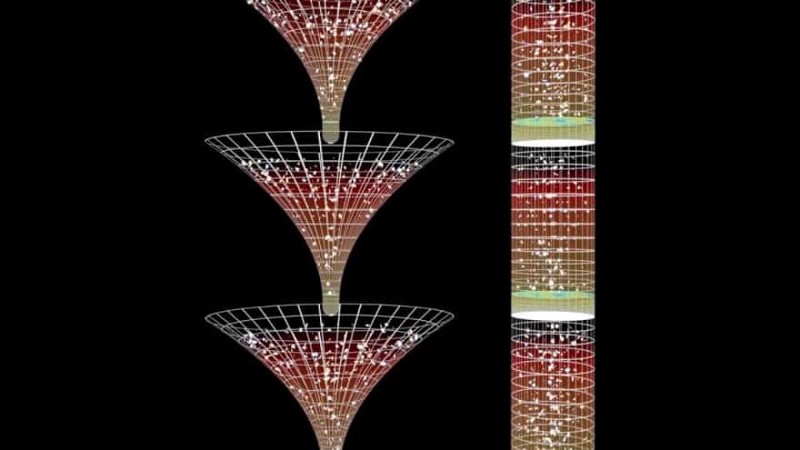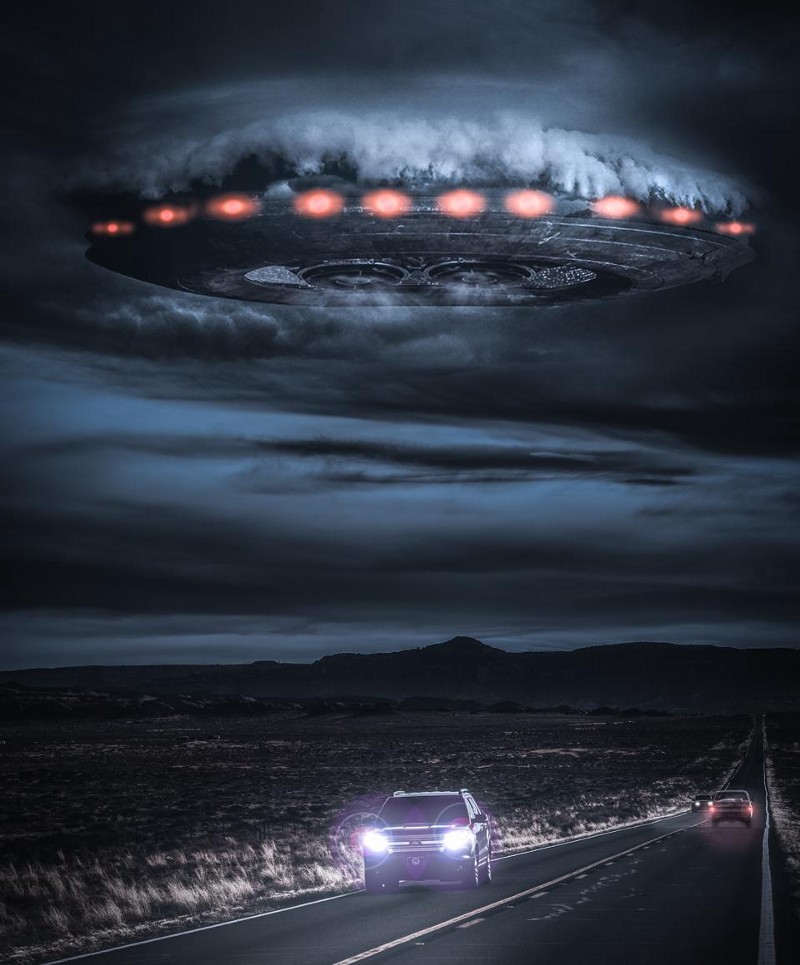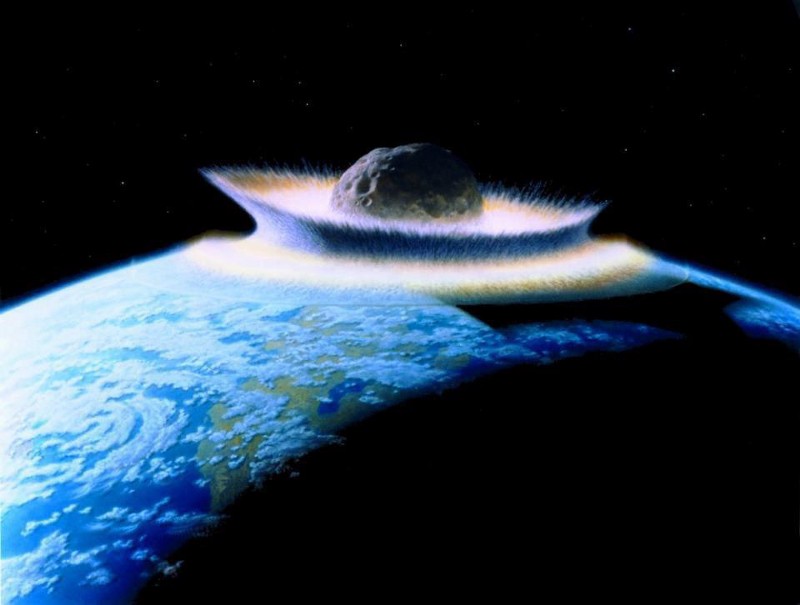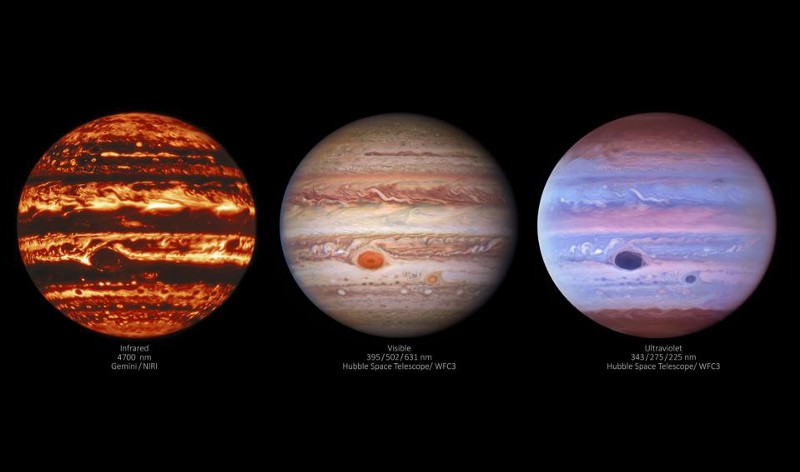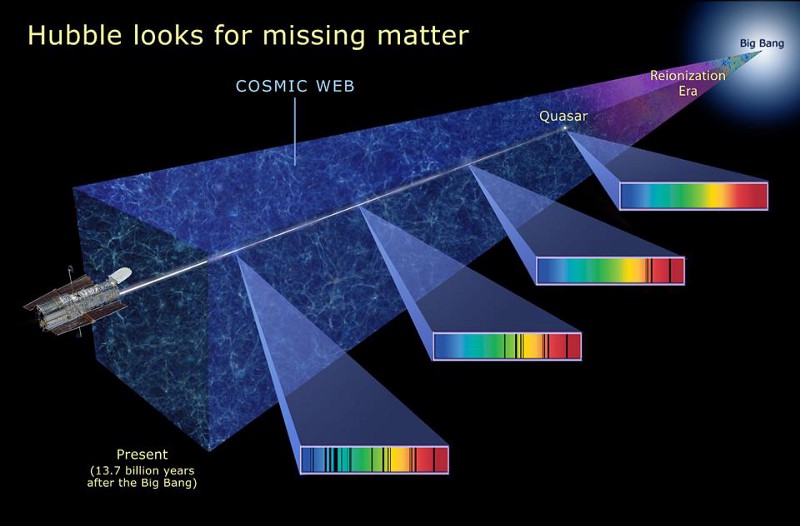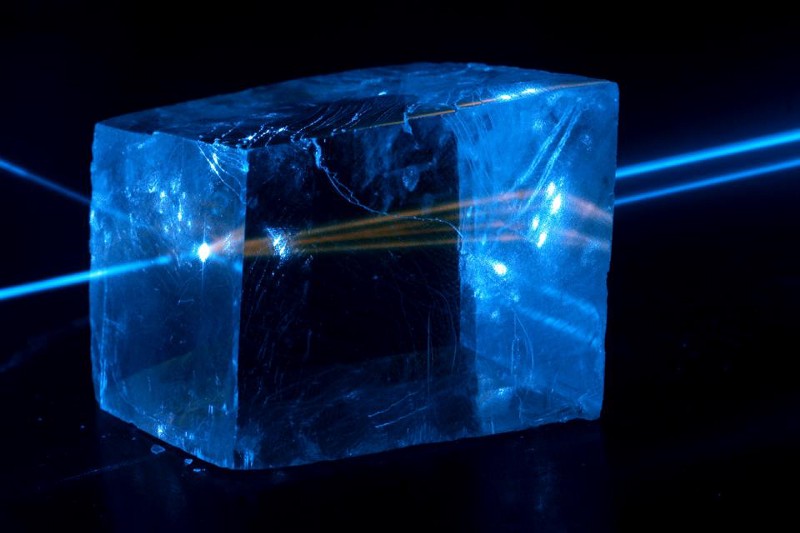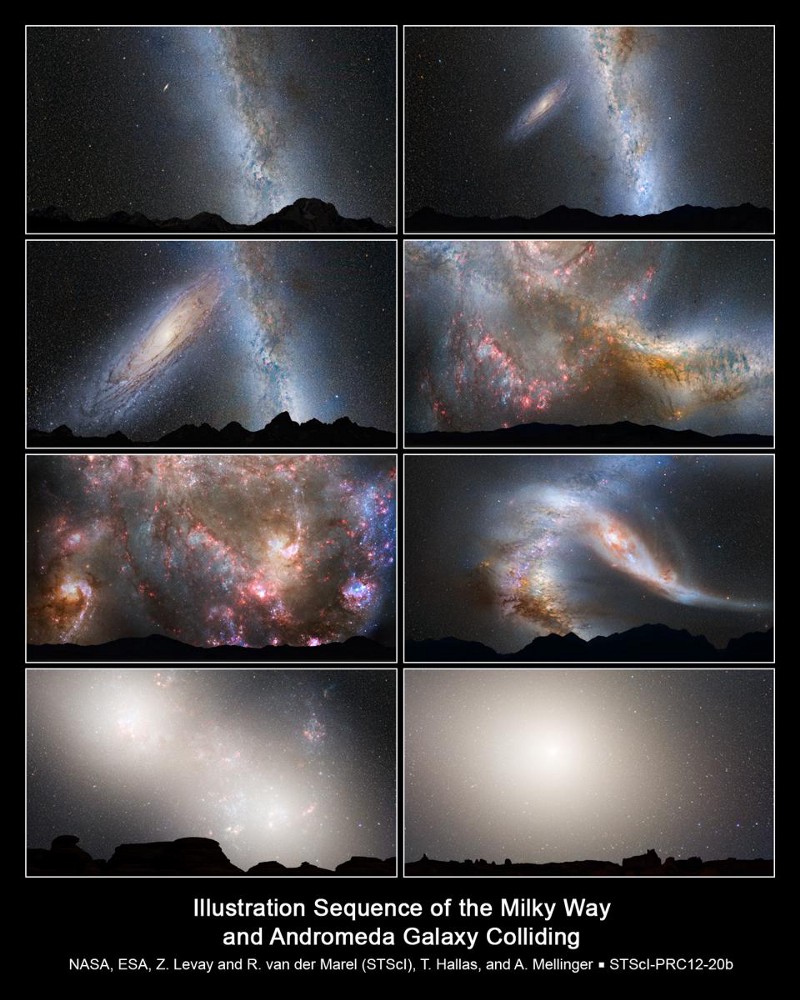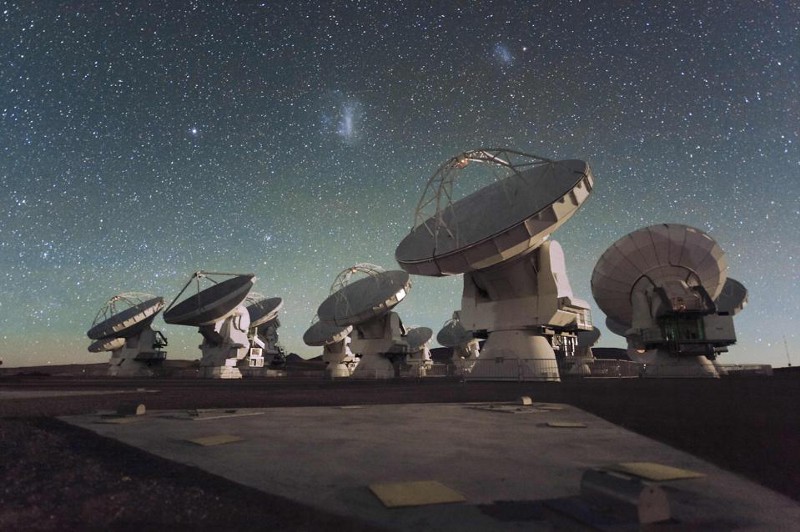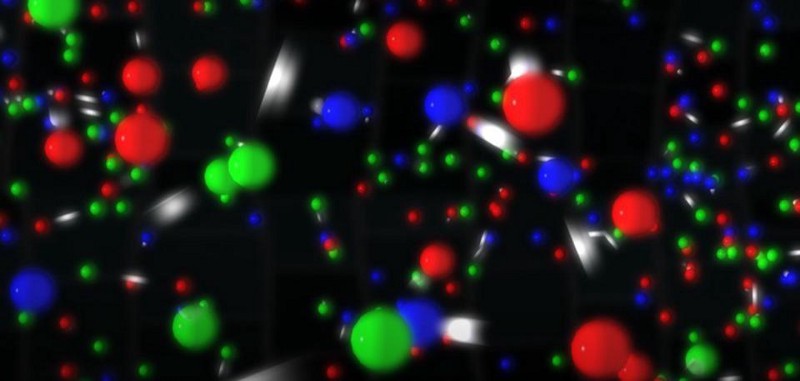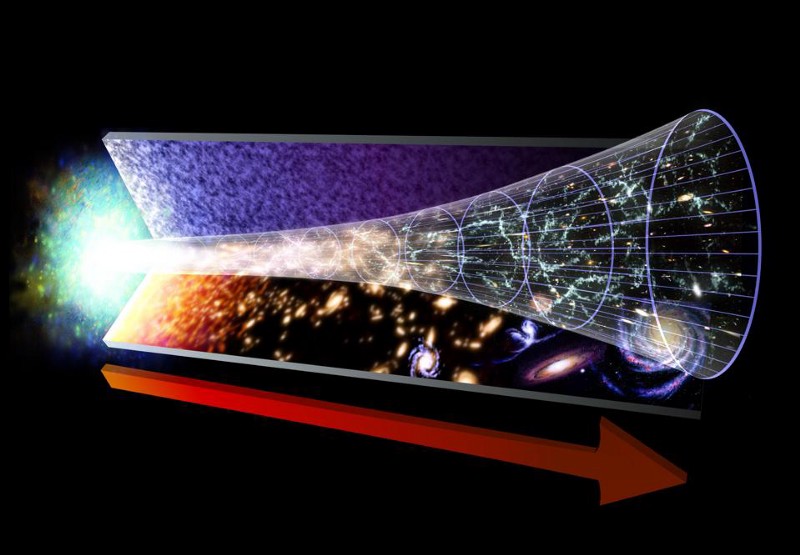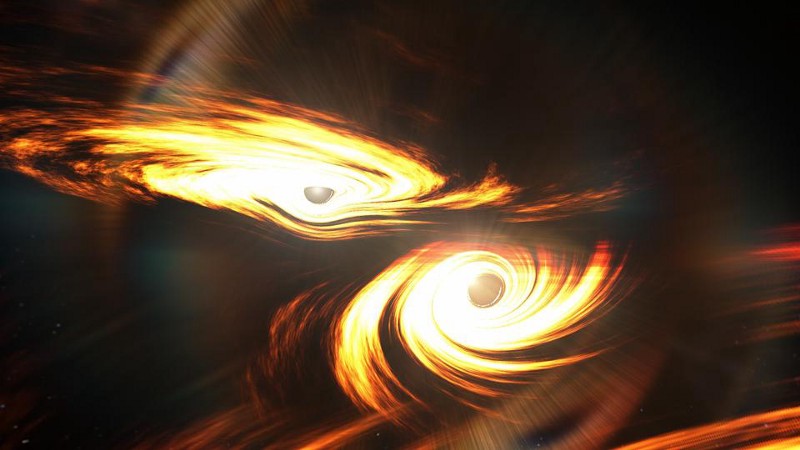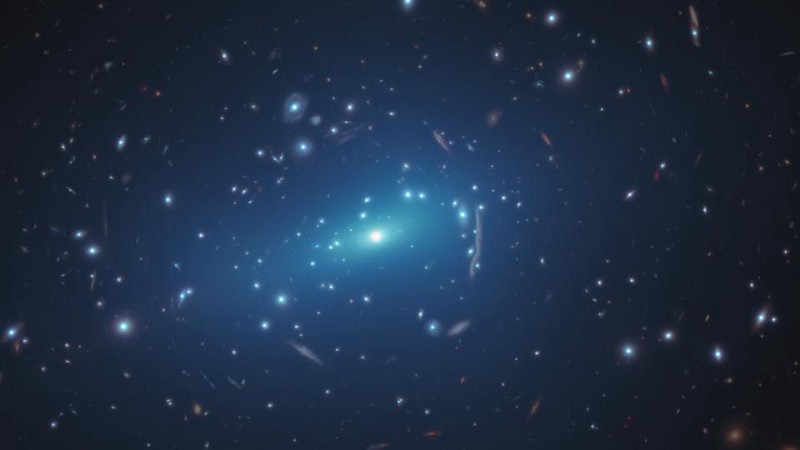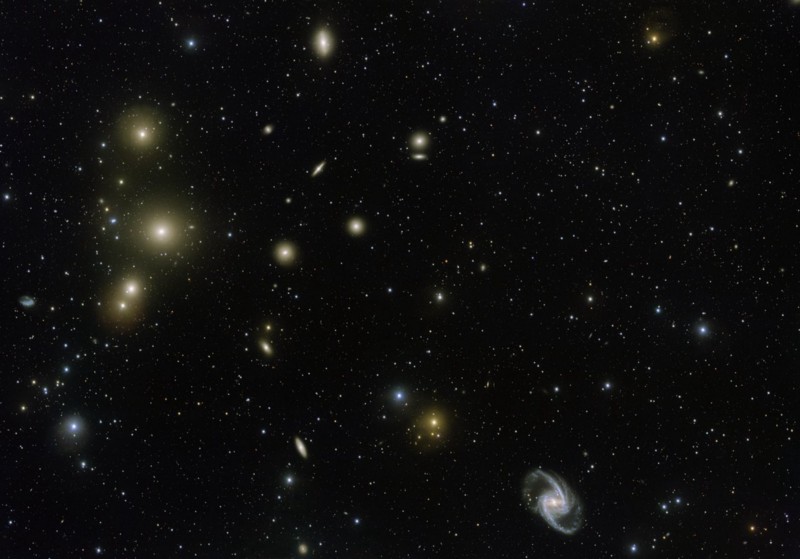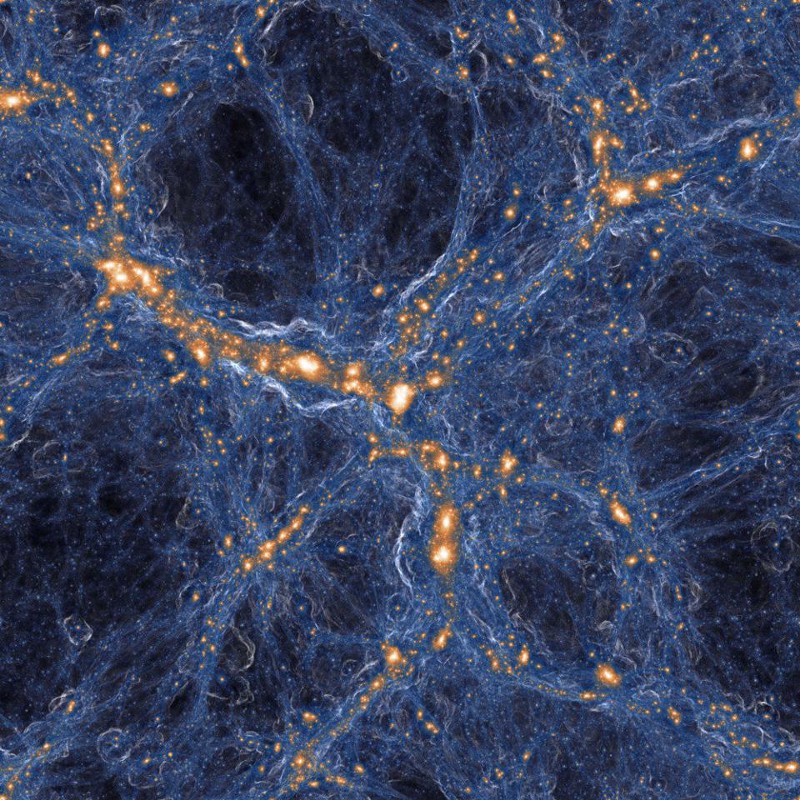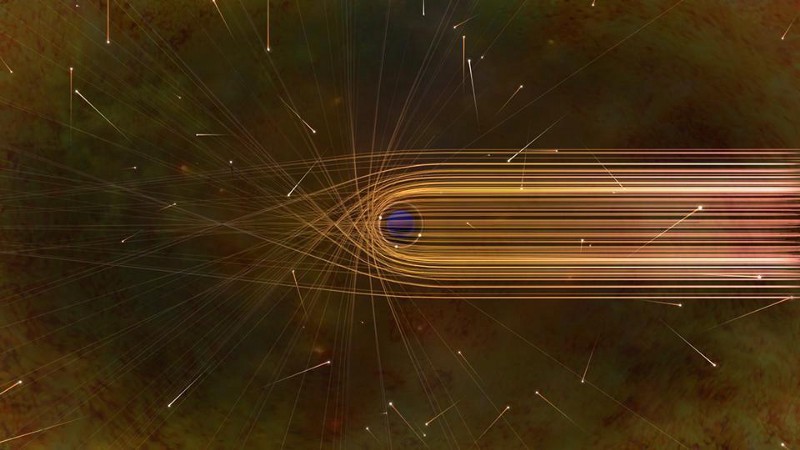Ethan Siegel
A theoretical astrophysicist and science writer, host of popular podcast “Starts with a Bang!”
Ethan Siegel is a Ph.D. astrophysicist and author of "Starts with a Bang!" He is a science communicator, who professes physics and astronomy at various colleges. He has won numerous awards for science writing since 2008 for his blog, including the award for best science blog by the Institute of Physics. His two books "Treknology: The Science of Star Trek from Tricorders to Warp Drive" and "Beyond the Galaxy: How humanity looked beyond our Milky Way and discovered the entire Universe" are available for purchase at Amazon. Follow him on Twitter @startswithabang.

Watch the plasma slide down the prominence like a roller coaster! Our Sun, despite it’s outward appearance as a perfectly hot sphere, is anything but uniform. When take a closer look […]
An artist’s impression of what the fully-deployed James Webb Space telescope will look like from the perspective of an observer on the ‘dark’ (non-Sun-facing) side of the observatory. (NORTHRUP GRUMMAN) […]
Three of our dimensions are spatial and one is temporal, but could there be more? From any point in space, you are free to move in any direction you choose. No […]
Despite the enormous flood of recent reports, there’s no good evidence for a lab leak. At the very end of 2019, a new disease began to emerge in humans: COVID-19. Originally […]
With 5,000 square degrees of data, the Dark Energy Survey has something important to say. For as long as humans have been studying the Universe, we’ve yearned to know the answers […]
With radio and X-ray data combined, we’re understanding how energy flows like never before. When we look out at the Universe on the largest cosmic scales of all, gravity is the […]
The sacrifices of early astronauts paved the way for Apollo’s successes, and so much more. In all of history, only 24 humans have ever escaped Earth’s gravity. The very first launch […]
Our galaxy not only isn’t stationary, but different parts are accelerating at different rates. When we think about the Universe as a whole, the accelerations that objects experience from our […]
It’s a wild idea, but there’s a way to test it. No matter how far we look out in the Universe, there’s always more “Universe” to see. Even at the extreme […]
And a combination of all three might take us farther than ever. If you want to see the farthest objects in the Universe, you have to know not only where to […]
‘Fast Optical Bursts’ will confound ground-based astronomy. As of 2021, planet Earth is currently experiencing the least pristine night sky in recorded history. Prior to the development of artificial lighting, […]
Or is ‘new space’ created in between the gaps of the ‘old’ space? It’s been almost 100 years since humanity first reached a revolutionary conclusion about our Universe: space itself doesn’t […]
The last image puts it all in perspective. Compared to what we find in our Solar System, galaxies are truly enormous. The Sun may be 109 times the diameter of […]
Has all this happened before, and will all this happen once again? There are only a few questions, when we ask them, that force us to reckon with the fundamental nature […]
It occurred naturally, and scientists know this for certain. Starting in late 2019, a novel strain of coronavirus, SARS-CoV-2, began infecting human beings for the very first time. Discovered in samples […]
Even the ones hunting for aliens aren’t excited. Here’s the reason why. In this world, there are very few issues more polarizing than the notion of aliens. For as long as […]
If a large asteroid strikes Earth, it has the potential to release an enormous amount of energy, leading to local or even global catastrophes. The strike that led to the […]
Infrared, visible, and ultraviolet combine to show us Jupiter’s features as never before. The largest planet in our Solar System, Jupiter, is our own ‘failed star.’ The best evidence-based classification scheme […]
Find out the truth for yourself. If this past year has shown us anything, it’s how thoroughly we rely on high-quality expertise. As the COVID-19 pandemic swept the globe, it […]
If it weren’t for a subatomic quantum rule, our Universe would be vastly different. In many ways, our views of the distant Universe are the closest things we’ll ever get […]
If you can’t surpass it in a vacuum, try doing so in a medium instead. In our Universe, there are a few rules that everything must obey. Energy, momentum, and angular […]
Even after our merger with Andromeda, we might retain our spiral shape for trillions of years. You probably don’t think about it very often, but the Milky Way galaxy won’t remain […]
Every observation out into deep space is also a look back in time. Whenever you observe an object, you aren’t viewing it in its present state. When one of Jupiter’s moons […]
Do they have real, observable effects, or are they merely calculational tools?
Is it groupthink? Or is there a deeper reason? In the early half of the 20th century, even after the discovery of the expanding Universe, physicists considered a wide variety of […]
Even addition has to play by different rules for black holes. How do you add 28 and 47 together? This simple math question helps us highlight the many different ways that […]
Deniers will never stop misleading others. Here’s the truth. Every so often, advocates of a fringe theory — one that doesn’t fit the evidence as well as the mainstream theory — do what they can […]
We can do so much more, so much faster, with the same data. When you think about how astronomy works, you probably think about observers pointing telescopes at objects, collecting data […]
Which is good, because if they do, they violate the cosmological principle. In theory, the Universe should be the same, on average, everywhere. A simulation of the large-scale structure of […]
We have to use the right definition for the specific question we’re asking. When it comes to the Universe, we frequently characterize objects by examining and reporting on their physical […]
